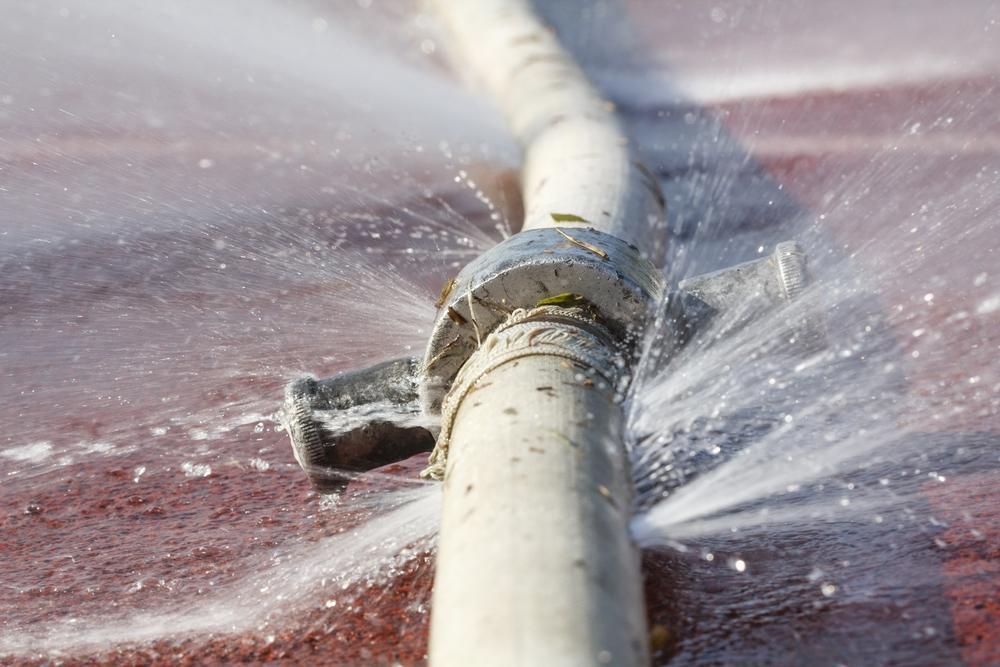Africa-Press – Rwanda. Members of Parliament have raised concerns over the continued leakages of treated water that prevent it from reaching consumers, even as the country struggles with shortages that have led to rationing.
The concerns were voiced on August 5 during a plenary session of the Chamber of Deputies, as lawmakers approved the Public Accounts Committee (PAC) report analysing the Office of the Auditor General’s findings for the financial year 2023/2024.
Some of the issues the parliamentary report cited, which were also exposed by the report of the Office of the Auditor General, include the fact that the Water and Sanitation Corporation (WASAC) continues to suffer significant water losses due to high levels of ‘non-revenue water.’
Non-revenue water refers to water that is produced but cannot be billed due to leakages, overflows, theft, inaccurate metering, or other factors or inefficiencies.
In 2024, non-revenue water stood at 39.5 per cent, a slight improvement from 42.4 per cent in 2023. Of the 76.63 million cubic meters (m3) of water produced during the financial year ending June 30, 2024, 30.27 million m3 – equivalent to 39.5 per cent – was not billed to customers.
This means unbilled water amounted to approximately Rwf9.77 billion, calculated at the minimum tariff of Rwf323 per m3, as per the report.
Repeated calls for action ignored
MP Germaine Mukabalisa said that Parliament has repeatedly issued resolutions over the past five years calling for reforms in WASAC’s operations, particularly in clean water production and distribution. However, the Auditor General’s report suggests these concerns remain largely unaddressed.
“Water rationing is still a widespread problem that affects Rwandans,” Mukabalisa said, voicing concern that even rationing schedules were not properly followed as per the parliamentary report, unfairly disadvantaging some households.
She expressed frustration over the persistent high rate of unbilled water.
“WASAC only bills around 60 per cent of the water it treats at a cost, while over 39 per cent remains unaccounted for.”
Mukabalisa also cited other ongoing challenges such as underutilised water treatment plants, leakages in the network, and delays in customer water supply connections.
“When we assess the monetary loss incurred by WASAC, it is very concerning,” she added. “I believe this issue deserves to be discussed at the level of the Prime Minister’s Office, because it involves both financial loss and negative impacts on people’s lives.”
MP Speciose Mukandanga pointed out that the level of losses reported in 2023/2024 is similar to that of 2021/2022, indicating little progress has been made. Depending on the water tariff used, the estimated loss value ranges from over Rwf9 billion at the minimum price (Rwf323/m3) to Rwf27 billion at the highest tariff (Rwf895/m3), she said.
“In our neighbourhoods, we regularly see water leaks or burst pipes, while people are simultaneously complaining about water shortages,” Mukandanga said. “If this continues, shouldn’t we request the Prime Minister’s Office to intervene directly?”
She pointed out that each year, the government allocates funds, from its limited resources, to ensure citizens access basic services, yet the recurring losses undermine these efforts. “It’s frustrating,” she concluded, observing that this issue requires a coordinated solution at the highest level.
Equipment shortages and delayed connections
PAC Chairperson Valens Muhakwa said that WASAC management partly attributed water supply shortages urban development and damaged infrastructure. He said WASAC has committed to acquiring equipment to detect leakages and hiring technicians to monitor and upgrade the aging water network—acknowledging that “every drop of leaked water represents lost revenue.”
According to the Auditor General’s findings, WASAC failed to connect 56 per cent of [new] customers within the required timeframe—delays ranged from 30 to 298 days. This violates WASAC’s own service charter, which mandates customer connections within two working days after materials are provided, according to the Office of the Auditor General’s report.
Additionally, 3,988 customers across various branches had waited between 11 and 463 days to be connected, despite having fulfilled all requirements. The report stated that WASAC attributed the delays to a shortage of water metres and recommended the water utility to improve its planning and procurement processes.
Meanwhile, WASAC Group indicates that it has set ambitious targets to accelerate progress towards universal access to clean drinking water and sanitation services.
Among other goals, the utility targets to increase daily water production capacity from the current 329,652 m3 to 688,686 m3 by 2030 – meaning more than doubling it within five years – extending the national water network by 4,637 kilometres (km) and rehabilitating 1,785 km of existing infrastructure, as well as reducing non-revenue water from 39.5 per cent to 25 per cent.
For More News And Analysis About Rwanda Follow Africa-Press






